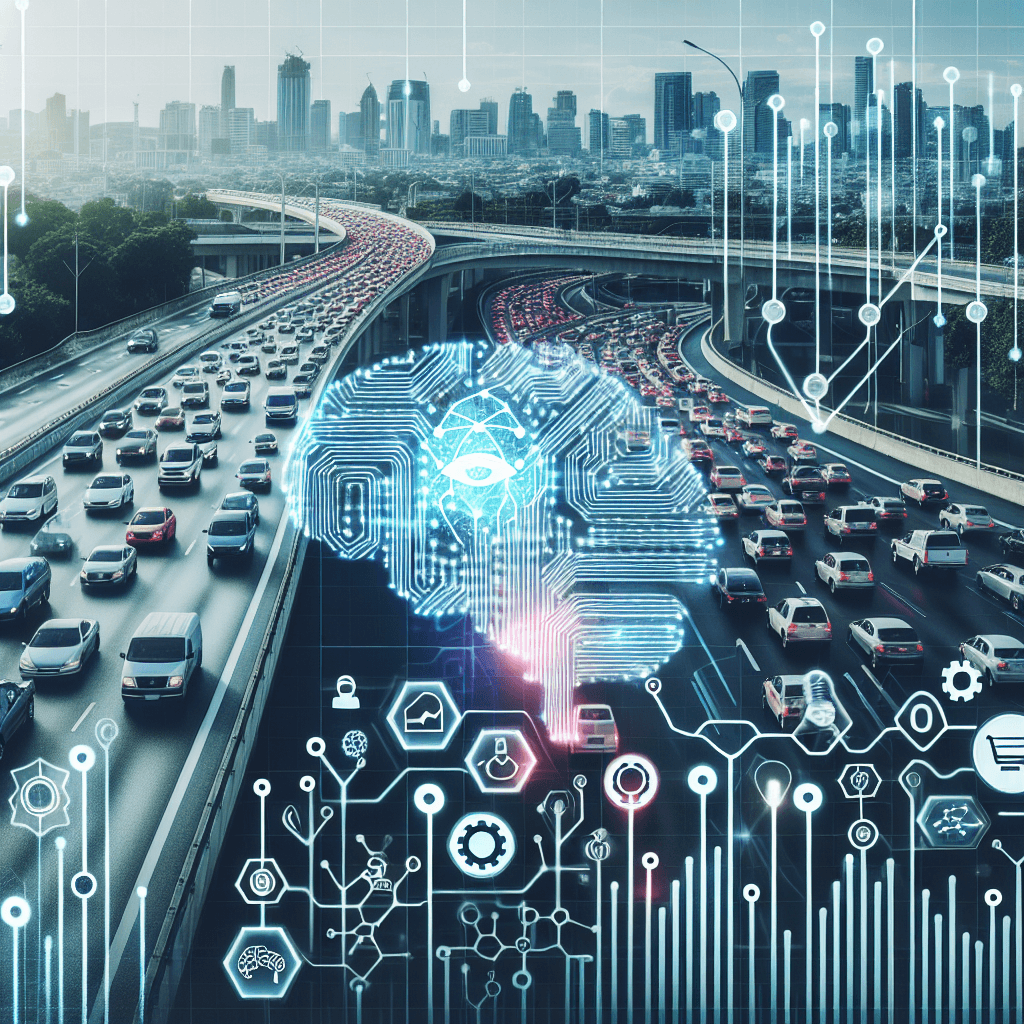In today’s fast-paced digital landscape, the demand for real-time traffic analytics is at an all-time high. Understanding user behavior, optimizing traffic flow, and enhancing user experiences are now paramount for businesses and cities alike. As technology evolves, Artificial Intelligence (AI) has emerged as a front-runner in the analytics arena. This article highlights the top AI tools for real-time traffic analytics that are revolutionizing how we perceive traffic data.
The Revolution of Real-Time Traffic Analytics
Real-time traffic analytics utilize sophisticated algorithms and machine learning techniques to analyze and interpret data instantaneously. This immediate analysis empowers businesses to make prompt decisions and adjust strategies as required. In urban planning, real-time analytics facilitate quicker responses to traffic congestion and accidents, ultimately improving city living standards.
Why AI Matters in Traffic Analytics
The integration of AI into traffic analytics provides solutions to age-old problems. Traditional methods often fail to keep pace with the dynamic nature of traffic, resulting in outdated data. AI tools, however, process expansive datasets in real time, allowing for more accurate predictions and insights.
Key Features of Top AI Traffic Analytics Tools
When evaluating AI traffic analytics tools, several characteristics stand out, including predictive analytics, real-time monitoring, user-friendly interfaces, and integration capabilities. These features not only streamline data analysis but also facilitate better application of the findings.
1. Google Cloud AI
Google Cloud AI provides comprehensive analytics capabilities tailored for traffic data. Its machine learning models can predict traffic patterns based on historical data, weather conditions, and current events. Google’s infrastructure allows for scalable solutions that are beneficial for both small enterprises and large municipalities.
2. IBM Watson
IBM Watson is synonymous with AI innovation. Its traffic analytics solutions leverage advanced algorithms to analyze road data effectively. With Watson, users can benefit from sentiment analysis, understanding how traffic impacts urban life through social media sentiment regarding congestion or delays.
3. Microsoft Azure Traffic Manager
The Microsoft Azure Traffic Manager not only handles traffic routing effectively but enhances real-time analytics. It provides users with data-driven insights to boost performance. Making use of interconnected devices, this tool enables smart cities to function optimally based on traffic data gathered from IoT devices.
4. HERE Technologies
HERE Technologies specializes in location data and mapping. Their platform offers real-time traffic insights, supporting businesses in logistics and delivery services to optimize routes and delivery times. The platform’s rich datasets and AI algorithms allow companies to make informed decisions quickly.
5. Waze for Cities
Waze, known primarily as a navigation app, offers tools to municipalities through Waze for Cities. This platform aggregates data from users to provide real-time insights on traffic patterns, enabling urban planners to engage with their communities effectively.
6. TomTom Traffic
TomTom Traffic provides real-time traffic flow information through advanced analytics. Its AI-driven insights guarantee accurate reporting, empowering businesses to adjust operations based on traffic data and enhancing traveler experiences by minimizing delays.
7. Sigfox
Sigfox is an IoT service provider focusing on low-power devices. Its network offers real-time analytics for urban mobility solutions, allowing cities to monitor traffic levels efficiently and derive actionable insights from the data collected.
8. Geotab
Geotab, a leader in telematics, utilizes AI-driven insights to track vehicle movements. This capability is critical for fleet management services looking to optimize routing and minimize costs associated with fuel and time wastage.
9. Samsung Smart City Solutions
Samsung’s Smart City Solutions encompass a range of tools aimed at enhancing urban environments. Through AI and IoT, Samsung delivers traffic analytics that support better resource management for municipalities, contributing to improved citizen safety and convenience.
10. PTV Group
Known for its comprehensive transport planning tools, the PTV Group embraces AI to offer real-time insights into traffic flows. Their solutions serve various sectors including transport and logistics, enhancing operational efficiency through data-driven decisions.
Real-World Applications and Case Studies
Understanding how these tools manifest in real-world scenarios is crucial. Case studies from various cities illustrate the impact of AI-driven traffic analytics on urban planning and management. Cities utilizing these solutions have reported decreased congestion, enhanced predictive capabilities for traffic flows, and overall improvements in commuting times.
The Future of Traffic Analytics
As technology progresses, the future looks promising for AI-driven traffic analytics. Emerging developments such as 5G technology, increased IoT integration, and enhanced machine learning capabilities will further amplify the efficiency of real-time analytics.
Challenges in Implementing AI Tools
Despite the benefits, challenges persist. Data privacy concerns, integration issues with existing systems, and the need for substantial infrastructure investments can hinder the swift implementation of these technologies. Stakeholders must navigate these challenges, ensuring that data is used responsibly and effectively.
The Role of Big Data
The role of big data in enhancing AI traffic analytics cannot be overstated. The sheer volume of data collected from numerous sources allows for richer insights and more accurate predictions, enabling better urban planning and traffic management.
Collaboration for Enhanced Insights
Collaboration among cities, businesses, and tech providers fosters an ecosystem where traffic data can be shared and utilized openly. This shared approach ensures that all stakeholders benefit from real-time insights and creates a cohesive strategy for traffic management.
Improving User Experience
Ultimately, the goal of implementing these advanced tools is to enhance the user experience for commuters and providers alike. Effective traffic analytics can lead to reduced journey times and improved satisfaction among city residents.
Conclusion: Investing in Smart Traffic Solutions
Investing in AI tools for real-time traffic analytics is not merely an option; it’s a necessity. As urban populations continue to grow, the effective management of traffic will become increasingly critical. By harnessing the power of AI and its advanced analytics, cities and businesses can ensure smoother and more efficient transportation systems for everyone involved.
With these innovations at our disposal, the future of traffic analytics looks brighter than ever. Embracing AI technology will undoubtedly position businesses and cities ahead in the evolving landscape of urban mobility.








